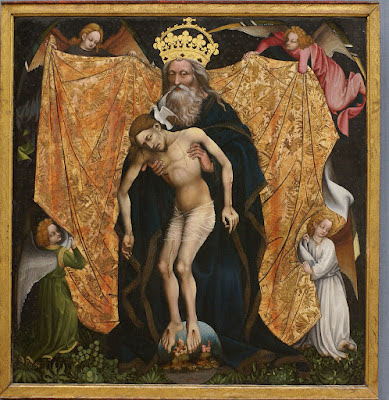Sober, charitable, and careful Christians willing to write reflectively and publish under their own names will assert without embarrassment that Saint Peter never went to Rome. This astonishes me.
Mind you, I have lived among Bible-believing Christians all my life who believe what is in the Bible and only what is in the Bible. I have found their faith edifying and convincingly manifest in their lives and in their prayer. But to encounter some who apply that standard to deny that Peter was head of the church in Rome is not only startling but gravely disappointing.
To pull up the Scriptural indications of Saint Peter’s presence in Rome would only play into the expectation that every Christian truth be asserted biblically. This fallacy deprives those who hold it of much that Christ bestows and even more that faith requires. The Church is confident in the truth of her sacred scriptures and jealous of their integrity, but at the same time grateful that their texts do not exhaust the content of the Faith.
One of the interesting things about Peter is that his authority, his indispensability for the unity and identity of the Church, is clearly not dependent on any of the things that usually confer authority. His intelligence, strength, administrative or leadership skills, and most importantly, his record of fidelity to the Lord are all very clearly notwhat won for him the role he was given. Similarly, no accomplishment of his own achieved any superiority over any of the many other disciples, much less over the other apostles. He was not elected or chosen for this role by those fellow apostles or any other population of the church. Peter was chosen, called, formed, and named by the Lord Jesus Himself. Peter’s weakness and betrayal were not anomalies but rather integral to his call, not obstacles but rather the occasion of his unique relationship to the Lord. Not his accomplishments but rather his redemption by Christ’s merciful forgiveness is the explicit model for every soul he was charged to feed and tend as his sheep.
The same Lord Jesus Himself set him as the one without whom the Apostles would not be united, the indispensable personification of the oneness Christ desired for the many who would be His body. Surprisingly, it was Saint James who was in charge of what seemed at the time to be the primary or even primatial church, that of Jerusalem. Saint Peter headed the church in Antioch, a later and smaller foundation in a city of great cultural and commercial significance, but hardly a city with claim to universal prestige either religious or secular.
When Peter went to Rome, he brought his authority with him, and the fledgling communion there received and recognized him. Capital of the Empire though she was, Rome did not confer her secular primacy on Peter’s ecclesial standing. Likewise, the community of Christians there did not claim or demonstrate any corporate influence or authority over the other churches of the day prior to Peter’s arrival. No, Peter was not the mark and standard of unity for the Church because of Rome; Rome became the center of the Church’s unity because of Peter.
The Church of Rome was transformed and rose to prominence because of Peter’s presence and model of martyrdom. His successors – Linus, Cletus, Clement, etc. – exercised Peter’s authority and followed in his footsteps. Every life, every act in the Church of Rome from earliest days testifies to this presence and activity of Peter. “The very stones cry out” that Peter lived and died in Rome.
His mortal remains, returned after some movement to the place of their first interment, mark the spot where a great basilica would be built to accommodate the multitudes who would come to venerate them. Neither the broad valley below nor the lofty hilltop above would be the building site, but an improbably steep slope that otherwise would have discouraged anyone from building anything on that part of the Vatican Hill.
Peter’s resting place is mere meters from where he died in a public spectacle, rebutting his earlier reluctance to follow his Master into death, and refusing to resemble him in crucifixion right-side-up, but revealing the hope of the resurrection. The hundreds and even thousands of similar witnesses who followed him proved stronger than the civil power of the empire and became the expression of the authentic glory that to this day radiates from Rome.
Though it is not written anywhere in the Bible, millions of people turned their attention just last month to the reality that unfolded before them and revealed that still today, Peter is in Rome.
Monsignor Smith




